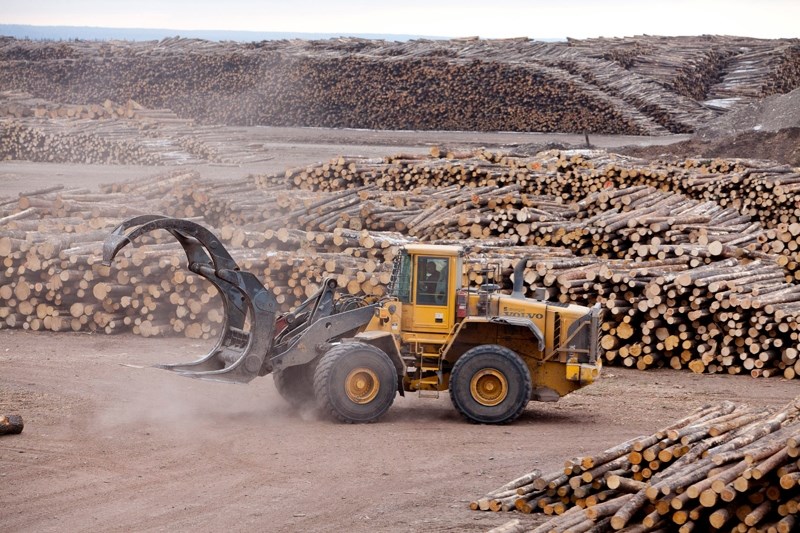Despite the protectionist policy pursued by the new U.S. administration, which recently announced its intention to impose tariffs on Canada's softwood lumber trade, Sundre Forest Products plans to proceed "business as usual," said its general manager.
"Leading up to this unfortunate announcement, West Fraser has been preparing itself accordingly for this potential," said Bruce Alexander.
"As such, at a local level we are business as usual going forward."
The U.S., which claims Canada unfairly subsidizes its lumber industry, wants to impose a tariff anywhere from three to 24 per cent on five Canadian softwood lumber exporters, which are as follows: Canfor, 20.26 per cent; Irving, 3.02 per cent; Resolute, 12.82 per cent; Tolko, 19.5 per cent; and West Fraser, 24.12 per cent.
"It is very unfortunate that this trade dispute between Canada and the U.S. continues. The U.S. Lumber Coalition believes that Canadian lumber is subsidized. This belief is false and wholly without merit," said Alexander.
"The countervailing duty imposed on the Canadian industry is unwarranted and West Fraser stands ready to assist the Government of Canada in pursuing a fair trade agreement."
The trade dispute has continued to bubble back up to the political surface since the early 1980s, with the World Trade Organization previously ruling largely in Canada's favour during the last row.
"We expect that in time these duties will be removed and refunded as has been the resolve in the previous Canadian-U.S. lumber disputes," said Alexander.
The last softwood lumber agreement between the two countries expired nearly two years ago. So the American government's announcement did not come as a surprise, he said.
"Unfortunately, the imposition of the duties were not unexpected. As a country we have been here four times previously in said lumber disputes. West Fraser is well prepared for this and continues to provide our support to managed trade in softwood lumber between Canada and the U.S."
Paul Whittaker, president of the Alberta Forest Products Association, called the U.S. accusations "baseless" during a telephone press conference.
He expressed every intention to challenge the tariff and prove the Canadian industry is not subsidized, and was confident that, as in past disputes, "we'll once again be fully vindicated."
Meanwhile, the whole situation "feels like Groundhog Day," he said, calling the new disagreement "round five."
Canada is the largest softwood lumber exporter to the U.S. The Canadian forest products industry represents a significant portion of the national economy as well as the local economies of many forest-dependent communities across the country. The sector is one of Canada's largest employers, providing 230,000 direct jobs and supporting one million families across the country, says the Forest Products Association of Canada.
Although the Asian market is not fruitful enough to replace U.S. trade, Whittaker said efforts must also be made to grow other potential markets, domestic and international.
The provincial and federal governments have also both spoken out against the countervailing duties against Canadian softwood lumber.
"It's very disappointing that our neighbour to the south has chosen this course of action," said Oneil Carlier, Alberta's minister of agriculture and forestry, during a recent telephone press conference.
"This is the fifth time since 1982 that the U.S. has investigated alleged subsidies in Canada. In each case, international tribunals have ruled in favour of Canada," he told reporters, adding the news was expected and that the development would have occurred regardless of which U.S. administration was in charge.
However, as Canada-U.S. trade represents about $2 billion per day, the government also unequivocally recognizes the importance of that crucial relationship, he said.
"Our American counterparts understand that."
The minister expressed confidence that just like with past disputes, Canada will prevail following negotiations and diplomacy.
"We're polite, but we'll put up a fight when we need to."



